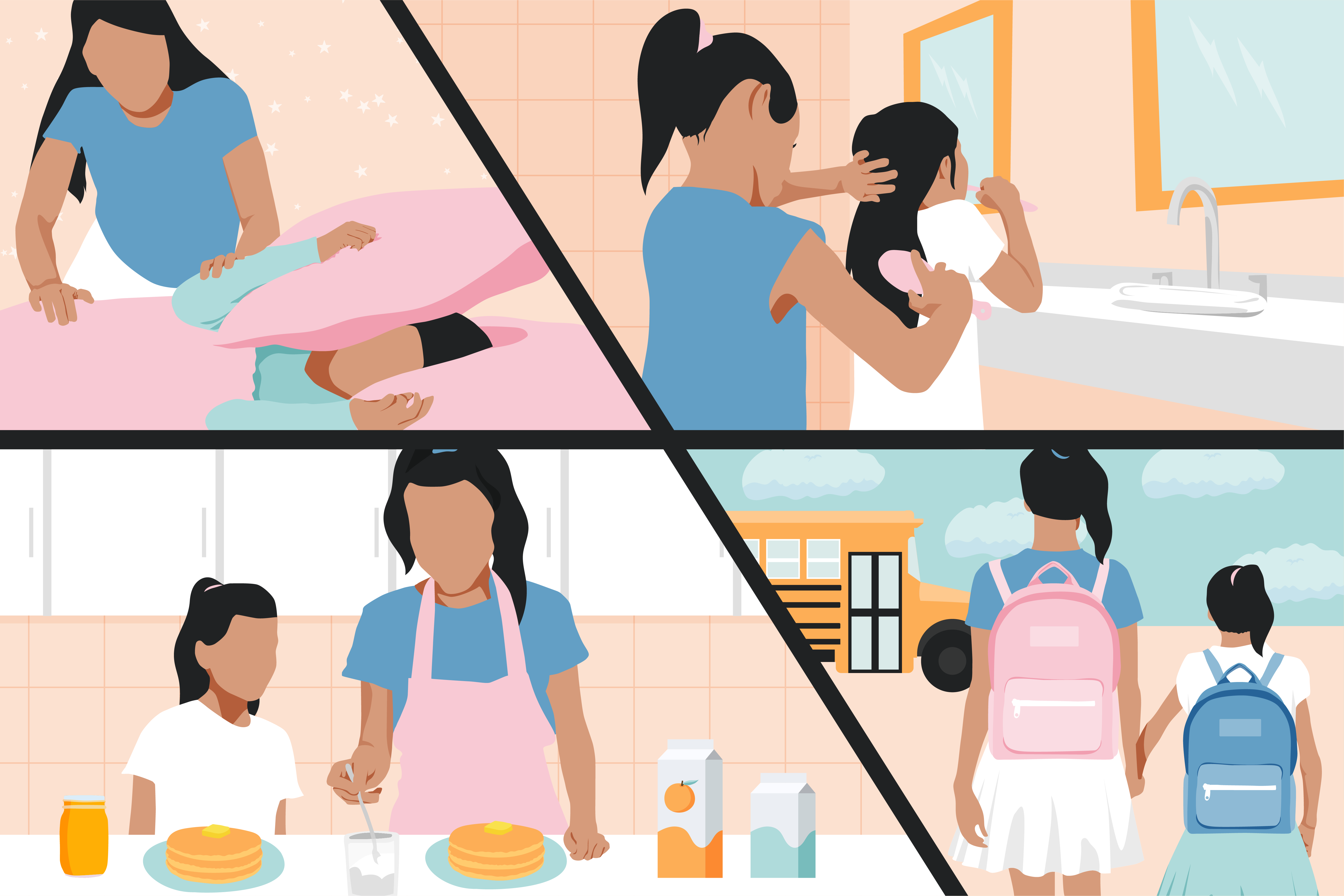
For a big part of my life, I was complimented on my maturity and my ability to handle responsibility. Something that, as of today, still feels like a compliment. But looking back on it, I've come to realize that being so mature at a young age wasn't always a good thing.
Around the age of 12, I found myself becoming my younger sibling's keeper in the midst of our parents' divorce. When we were staying with family away from our home, it became my responsibility to make sure my sibling wasn't distressed, was eating well, and overall was safe and happy. I would then report back to my parents as an intermediary since they weren't on speaking terms. Soon enough, my stays away from home became less about myself and more about creating the right environment for my sibling.
When I became a teenager, my biggest worries should've been what to wear to a party or an upcoming exam. But on top of those, I found myself also worrying about my parents' lives, financial issues, and my sibling's upbringing. As a result, I didn't feel comfortable around people my own age because I felt like I had nothing in common with them.
My experience all falls under parentification. The term, coined by Hungarian American psychiatrist Ivan Boszormenyi-Nagy, describes a reversal in which a child leaves the role of a child to act as a caregiver. "The adult essentially adopts the dependent position in the parent-child relationship and, in turn, the child is expected to fulfill what are typically considered to be adult responsibilities," says Jennifer A. Engelhardt, Psy.D., a psychologist in Philadelphia.
When being forced to mature quickly, kids skip developmental stages, explains Sophie Chung, M.D., CEO of Qunomedical, a digital health platform based in Berlin, Germany that connects doctors and patients worldwide. Our developmental stages are what form our personality and set a basis for our lives as adults. When these are skipped or rushed through, our sense of self is changed and that can lead to issues in adulthood.
The Effects of Parentification
Parents who parentify their children tend to see them as an outlet for their frustrations, as a shoulder to cry on, explains Jana Bou Reslan, Ph.D., professor of educational psychology at the University of Balamand Dubai. The issue is young kids are the ones who need support from their parents while they are developing their worldview.
Until around 7, children have an egocentric perception, where they cannot see another person's point of view. That's why they cope more effectively when hearing things from a positive perspective. This doesn't mean parents shouldn't be honest, which is necessary in a parent-child relationship. It's about explaining the world in the right dose, in an age-appropriate way, and not relying on a child for emotional support. Doing the latter can cause stress and trauma.
Children and teens who deal with parentification may struggle with anxiety, depression, suicidal thoughts, worry, social isolation, constant worry, and overworking, according to Newport Academy, a therapy program for adolescents with mental health or addiction issues with various locations around the country.
I know this firsthand. Being exposed to adult problems as early as 9 years old opened my eyes to a world that was too much for my younger self to handle. As a child, hearing how the cost of divorce, lawyers, mortgages, and alimony were changing up my family's financial status—without really comprehending economics—made me spiral into thinking I could lose all my belongings and end up homeless. It made me worry about things I couldn't do anything about it. All it did was produce anxiety and confusion about the future.
Experts say parentification can also cause issues in adulthood, particularly when it comes to building healthy relationships. Many continue to take on the role of supporter, advice giver, or listener and become people pleasers. Research shows they have trouble dealing with rejection and disappointment in relationships and experience anxiety over abandonment and loss. They may also struggle with anger, anxiety, poor self-esteem, and trust.
When Responsibility Becomes Too Much
There's nothing wrong with giving a child chores to do around the house—in fact, research shows it's good for them, as long as the duties are age-appropriate. But there's a fine line between teaching a child to be responsible and giving them adult responsibilities. The distinction is important as older siblings have taken on more responsibility during the pandemic while parents struggle with child care and schools and other educational facilities have shut.
As Dr. Chung points out, asking your child to help around the house by doing dishes or tidying up is OK, as is asking a teen to fix their sibling a bowl of cereal in the morning. The trouble comes when a child is expected to be the sole provider of cleanliness, food, or ensuring their sibling is awake on time, fed, and sent to school every day. That's when chores become full responsibility and a child is faced with a lot more pressure than they should be.
Dr. Reslan agrees, adding that you can ask your child to set the table or watch their sibling for a set period of time whilst you're busy, without creating a habit out of it.
The Bottom Line
We want children to learn to be autonomous and responsible over time, and this entails healthy chores that match their physical and mental development. But experts say no matter how mature or independent a child may seem, they aren't capable of taking on adult responsibilities. Their only role within the household is to be a child.
